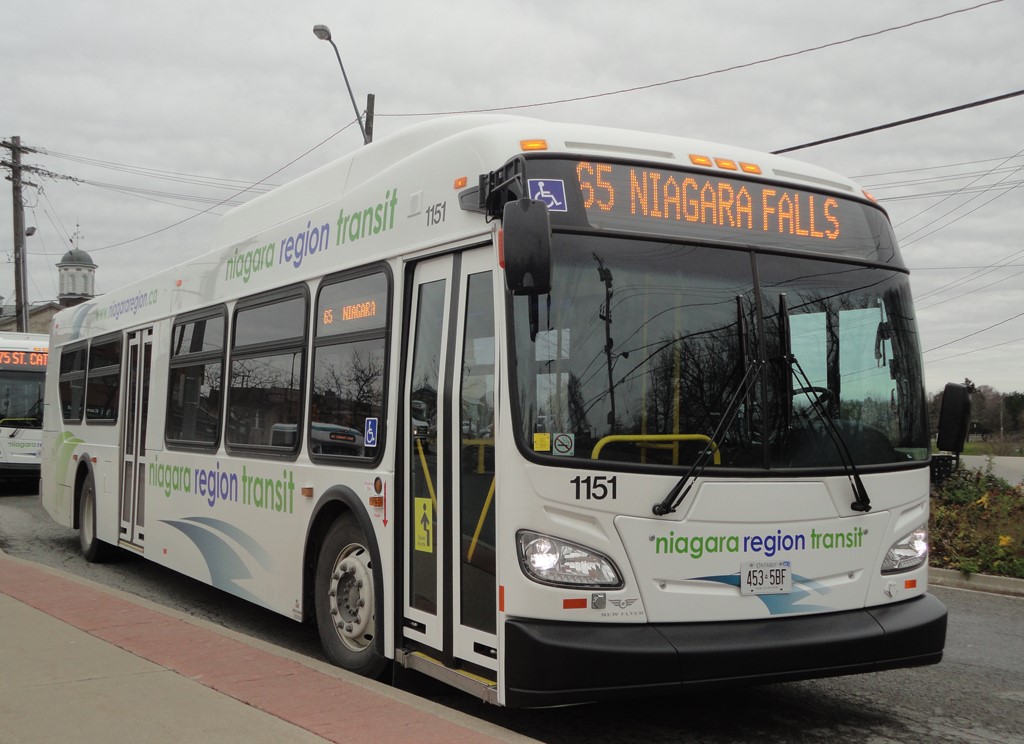Niagara’s transit system is at a crossroads, and it’s time the region stopped shortchanging one of its most vital services.
With the proposed six per cent increase in Niagara Transit Commission’s (NTC) annual budget, critics like Jay Goldberg from The Niagara Independent warn that taxes could rise. But let’s be clear: this small bump is a critical investment in the region’s future, and Goldberg’s argument — filled with more subjective opinion than factual analysis — misses the mark entirely.
Anyone who’s ever used public transit in Niagara, particularly students and lower-income residents, know that the system is already stretched to its limits while still doing its best to keep up with constant demand.
As a regular user of the 50 and 55 bus routes, I’ve personally witnessed these buses operating at or over capacity on a daily basis. Just last week, I was compelled to email the NTC about the worsening situation:
“Earlier this week, I was told by the bus driver I would have to wait an hour for the next 55 bus to go home (Niagara Falls) from Brock because his bus was full beyond capacity. This happened after 7 p.m. and I don’t blame the driver, I did not want to get onto that bus which must have had close to 70 people on it, but the 8 p.m. was negligibly emptier… And I must emphasize, this is not a few small one-time incidents. This is how it is every day.”
Overcrowding is dangerous, unsustainable and indicative of a transit system in desperate need of greater support. Students who rely heavily on these buses make up a large percentage of Niagara’s ridership. This includes Brock University students, many of whom depend on buses as their only mode of transportation. We can’t simply ignore these perspectives.
Jay Goldberg’s concern about a six per cent budget increase is absurd.
Transit is one of the cleanest, most efficient ways to ease road traffic and reduce the region’s environmental footprint. The buses in Niagara often operate at full capacity, a sign not of inefficiency, but of high demand — a demand the region has historically failed to meet.
A slight budget increase is a small price to pay for the significant benefits public transit provides, particularly for low- and middle-income residents who have few other transportation options.
Goldberg, despite his political science Ph.D., appears out of touch with the needs of Niagara’s working class. I’d be surprised if he’s taken public transit in the last decade, which might explain his failure to understand how important a well-functioning public transit system is to the community.
Imagine he had bothered to talk to the thousands of students, seniors and working-class residents who rely on Niagara’s buses every day. Maybe Goldberg would have realized how misguided his claims about affordability truly are.
Transit is not just about getting from point A to point B. It’s about providing economic mobility to those who can’t afford cars, giving students the means to get to school and work, and keeping our roads less congested.
A mere six per cent increase in the transit budget is hardly the burden Goldberg suggests. In fact, this figure is laughably small when compared to the alternative: more cars on the road, more traffic and an even greater strain on our already crumbling infrastructure.
Despite these criticisms, starting July 1, 2025, the NTC will introduce fare harmonization to cap all bus fares at a single, affordable rate of $3.50 across Niagara.
This will mean a slight 17 per cent increase in inter-city fares from $3 but the current $6 regional bus fare will be cut by 42 per cent, ultimately providing greater accessibility within the region.
The staff report by the NTC said the changes are intended to simplify the fare structure and, by addressing fare disparities, create “a more equitable and user-friendly transit system.”
The $3.50 fee harmonization will make Niagara’s local fare an estimated 34 cents cheaper than similarly sized regional municipalities in the Greater Golden Horseshoe area and just 14 cents shy of an adjusted living wage cash fare.
All of these changes and budget considerations by the NTC aim to make Niagara’s transit system more efficient and affordable, and ultimately support our environmental sustainability and infrastructure.
If Goldberg had to stand on an overcrowded bus during peak hours just once, perhaps he’d understand why this budget increase is not only justified, but necessary.

